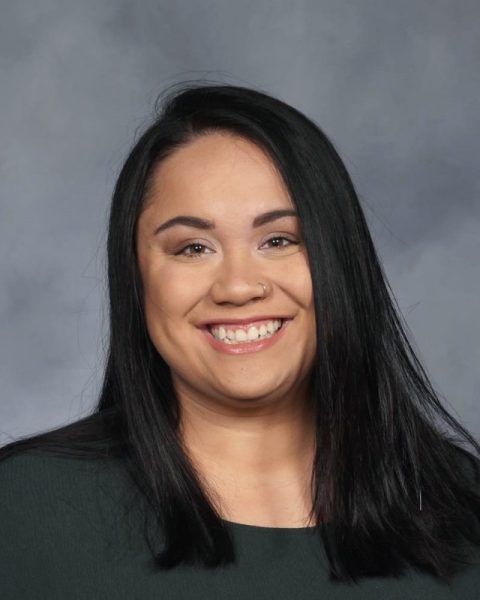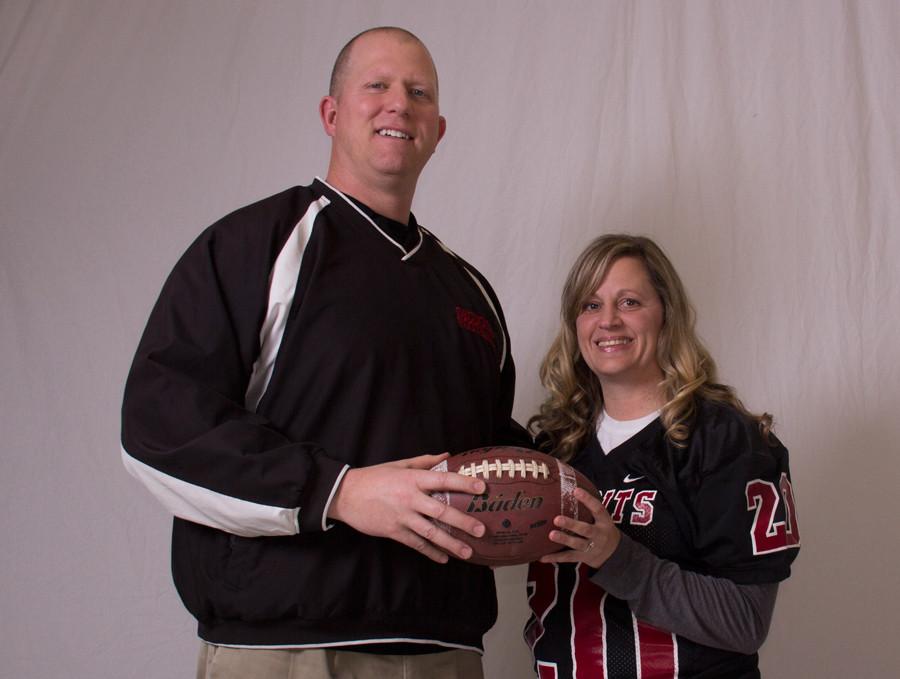Communication Between Parents and Coaches
Communication between coaches and parents builds trust, responsibility and pride, and, ultimately, success in the program.
Football coach Brian Glashagel and Lisa Webb, junior Dale Trusky’s mom, have created a strong bond between the coaching staff and the parents.
Coaches nowadays have huge responsibilities. In addition to coaching a winning team, they have to make sure their athletes are out of trouble, healthy and in shape, and academically eligible to play. They also must bond with parents and answer their questions, who come with high expectations and great intentions to be involved with their child’s sport. Some parents wish to be greatly involved and attend each game, while others are minimally involved and let the coach take over for the next eight or more weeks. Then, of course, there are always the few parents that can be overly involved. Coaches can experience problems with these overly involved parents that yell or try to coach on the sidelines, questioning any decisions or calls that the coach or referee makes and even verbally abusing opponents. Parents that confide in these negative and vulgar behaviors do not understand the embarrassment and poor sportsmanship it brings to the school, team and their child.
“I will call administration when parents don’t cooperate,” said Antioch Community High School varsity field hockey coach Terry Dewing. “My focus is on the game and winning, not the parents.”
Though girls’ field hockey has a different environment than Friday night football games, parents come from all around and act out in both situations.
“During varsity games, I can’t hear anything, but my wife, family and friends can while sitting up in the bleachers. Parents can be cussing and foul mouthing me the whole time and I don’t even know about it,” said ACHS varsity football coach Brian Glashagel. “We have had a couple of incidents of parents being belligerent during freshman and sophomore games; those are the ones you can hear everything. A few years ago, parents were getting out of hand at the sophomore football game. They were yelling at opposing team players and officials. Our freshman coaches had to literally turn around and tell them to shut up and stop embarrassing themselves and our school. There will always be that group of parents who think they can say whatever they want.”
In the world of high school sports, playing time and favoritism are ongoing conflicts that seem to go hand in hand. It is common to see the same starters every game; once a coach finds that “winning formula,” making any slight changes will be affected in the short-term. Some athletes think that coaches that are well familiar with some of their players tend to lean towards them in terms of playing time, but in the eyes of a coach, playing time is based on work ethic, talent and skill. Some parents feel the need to step in when their child is not receiving as much playing time as others, and some are the reason why their child gets to step out on that court or field more than others.
“As a parent, seeing your child not being able to play is always hard. But when they are playing at a high school level that is between a coach and parent, the coach sometimes begins to clearly show favoritism towards that child. A coach should never let a child play more or less depending on how well they like the parent.”
Coaches all around agree that playing time relies on how much an athlete trains and how much skill they develop over time, not by their parent’s status or personality.
“Playing time is always going to be a bulk of being a coach, one of the biggest issues involving parents is playing time. Football-wise, we set parameters, we want to have our athletes first talk to their position coach, then level coach and finally head coach. Every coach will tell you that playing time is an issue,” said Glashagel.
“My focus isn’t the parents, but on the athletes. I want the parents to feel comfortable and in my 17 years of coaching I’ve never had a problem with parents, mutual respect is what creates that environment,” said Dewing.
Many other parents believe that it’s the roles that other, more involved parents play that is what gets their child more playing time, but that is not the case at ACHS. It’s more than just a game to the parents, but the bonds that are developed in their child’s high school career.
“I was on the football board last year and sometimes my son wouldn’t get much playing time, but it’s not about that. It’s about the boys. I love the junior class,” said football mom and chair of the football moms board Lisa Webb. “I love having a bond with this team. It’s a great bunch of boys. I’m on the field a lot because I take pictures during all the games; it’s my favorite thing to do, other than feeding all of them. It’s about making bonds and memories that they’ll never forget.”
Though the parents that seem to get way too involved draw much attention to themselves, it’s the parents that sit through the cold and rainy games, organize and plan fundraisers and drive their children to practices and games are the ones that go unrecognized. The soccer, basketball, football and cheerleading moms and dads are the backbone of these sports.
“I love being involved with all the different activities. I love that the other players have welcomed me to their precious lives. The main difference between being a field hockey mom and being a football mom is nothing. In the end the result is the same: make sure the kids are fed and happy and us parents are just there to cheer for them and love them. I think parents are the ones that miss out by not being involved. I have made some of the best friends through my kids sports and I wouldn’t trade the hugs and hellos I get from all of [the players],” said Dampf.
“I have been fortunate enough, ever since my son’s freshman year, to have a group of phenomenal moms, like Sarah Andre and Linda Grenke,” said Webb. “When it comes to meals, incentives, camp or fundraising; it’s always for and about the boys.”
Whether parents play a role in their child’s sport or send them off into the coaches hands, communication can play an important role. A strong bond between a parent and coach can make an athlete’s sport season more memorable and enjoyable, especially in the long run. When coming back to Antioch from college years later, it is always a nostalgic feeling to visit an old coach. Watching freshmen in the same position you were, years before competing for those varsity spots and bonding with your former coach.
Glashagel said, “I like to know my players. I like to know their parents. I prefer to have a relationship with the parents. Since I moved into town this past summer, I’ve been bumping into parents more and it can be awkward sometimes, but there are some players and their families you just bond with, take all the football moms for example. I have players from six or seven years ago that get in touch with me over Facebook to wish me good luck on big games, even parents that continue to help with the football program after their son has gone off and graduated. It’s a great feeling.”



